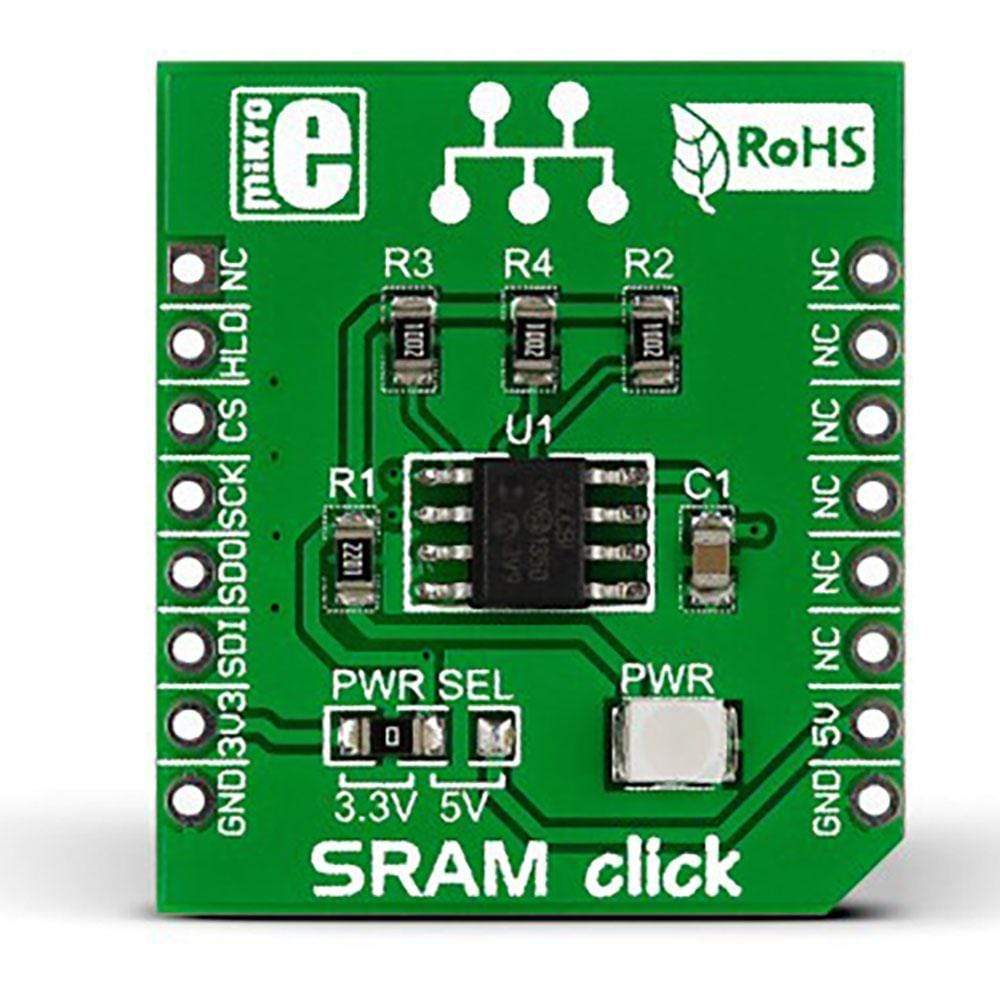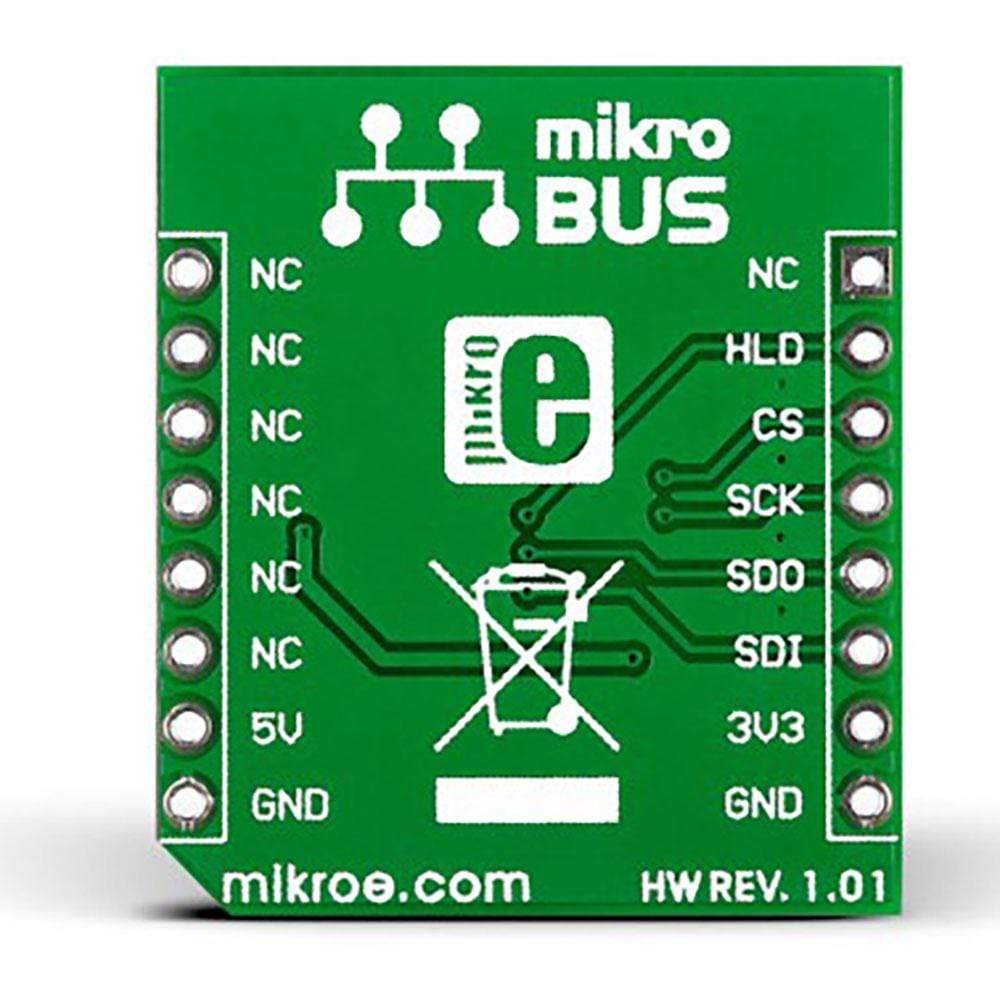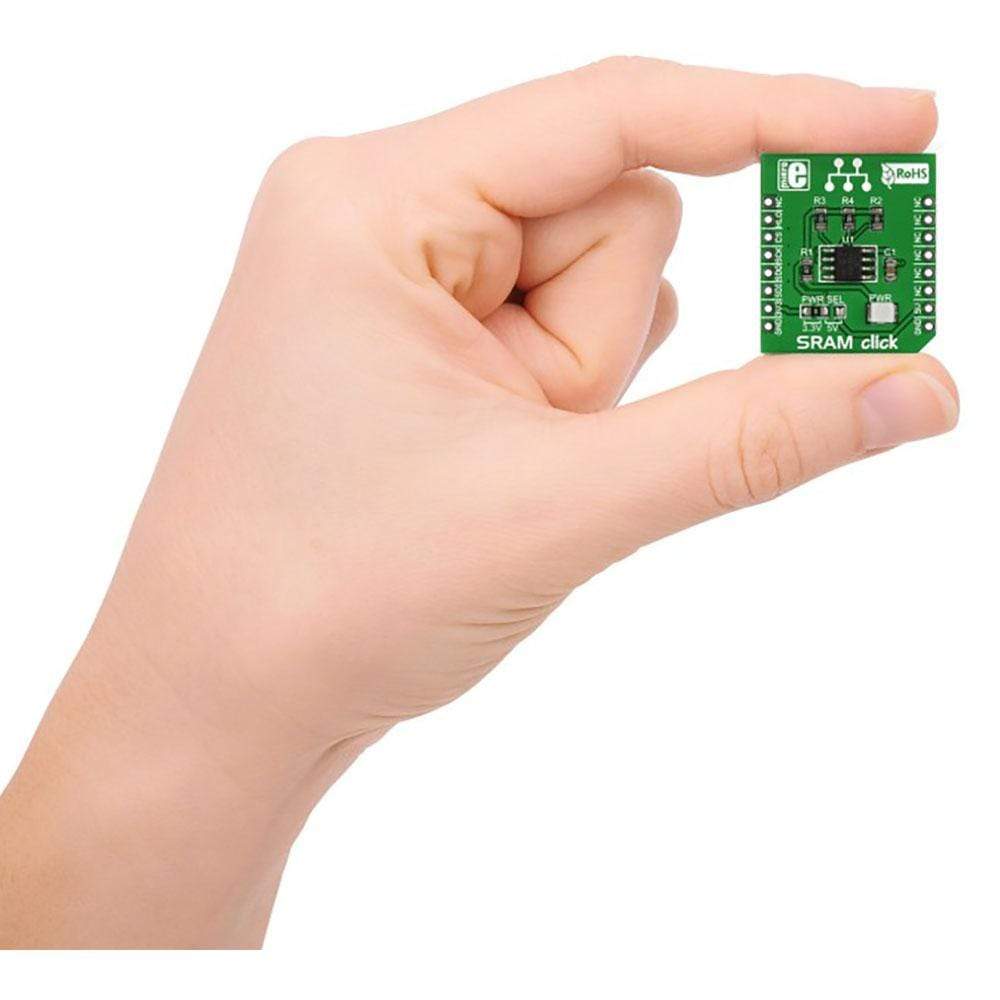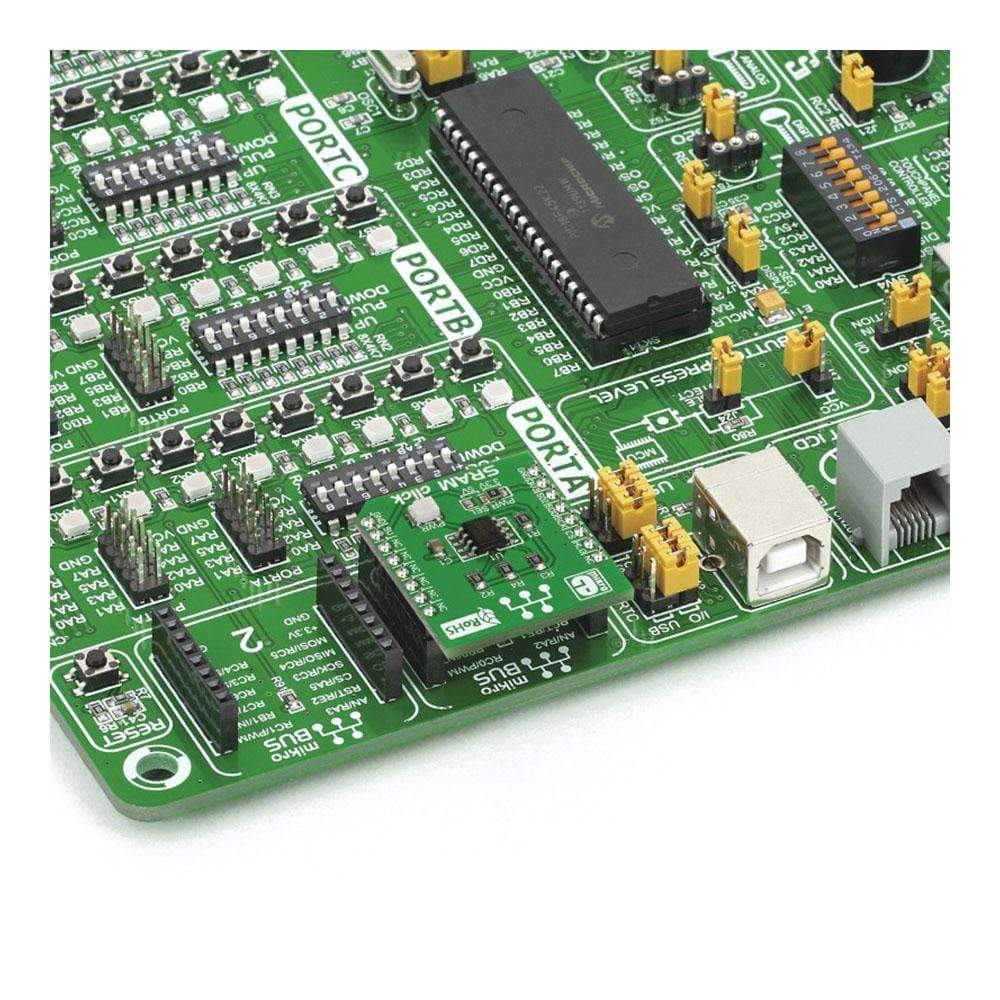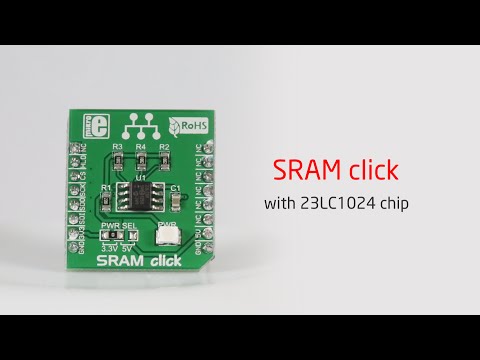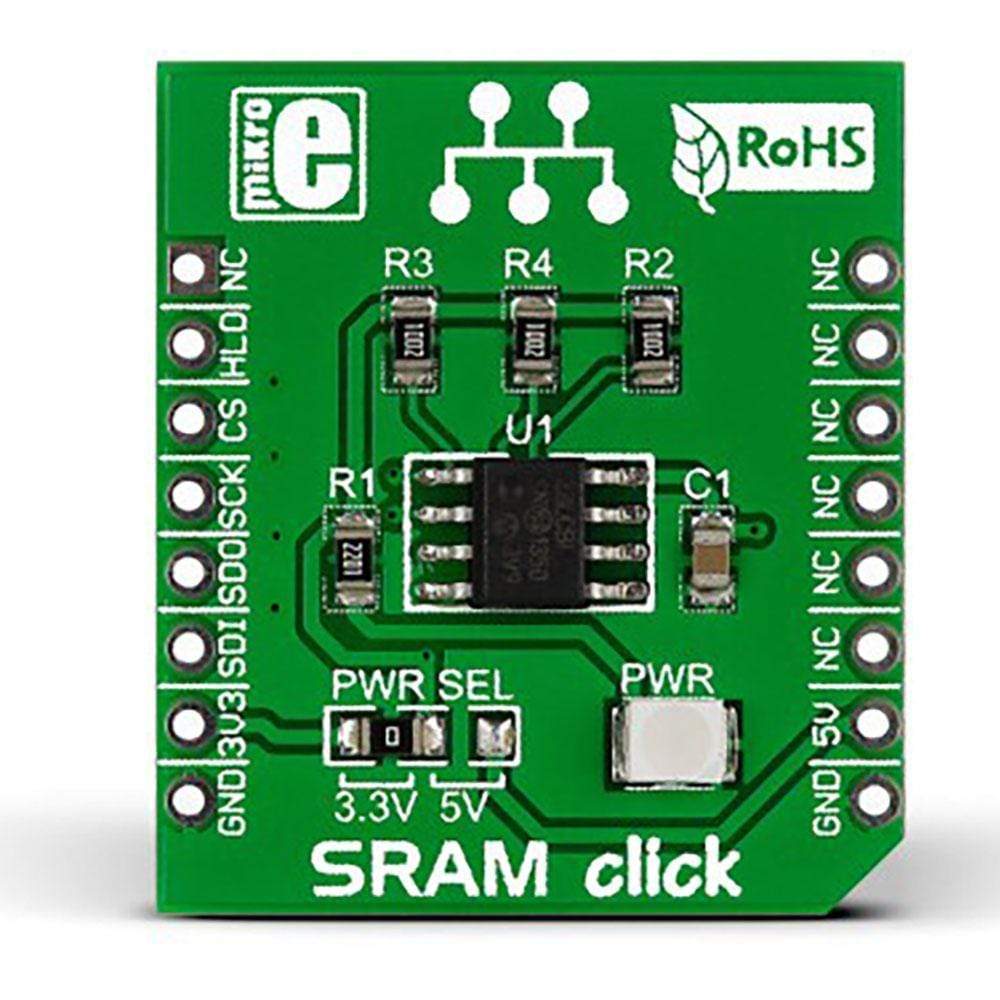
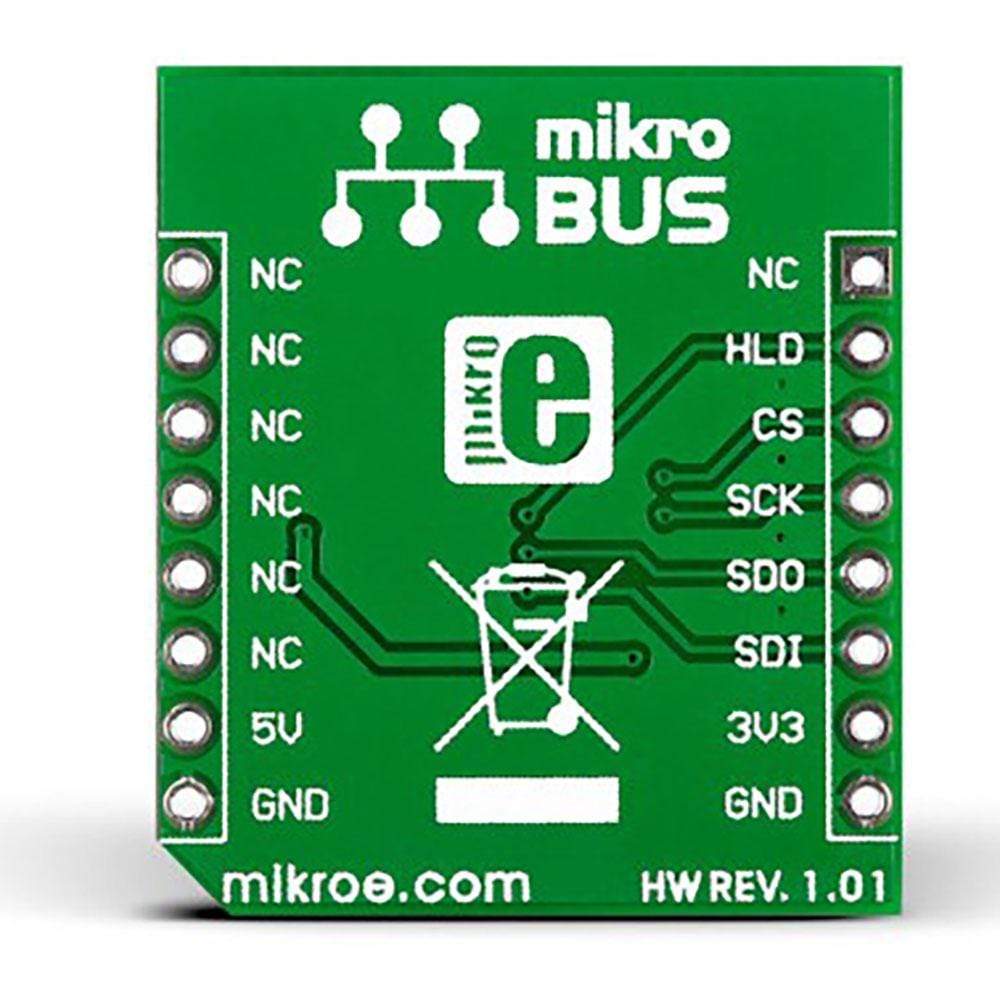
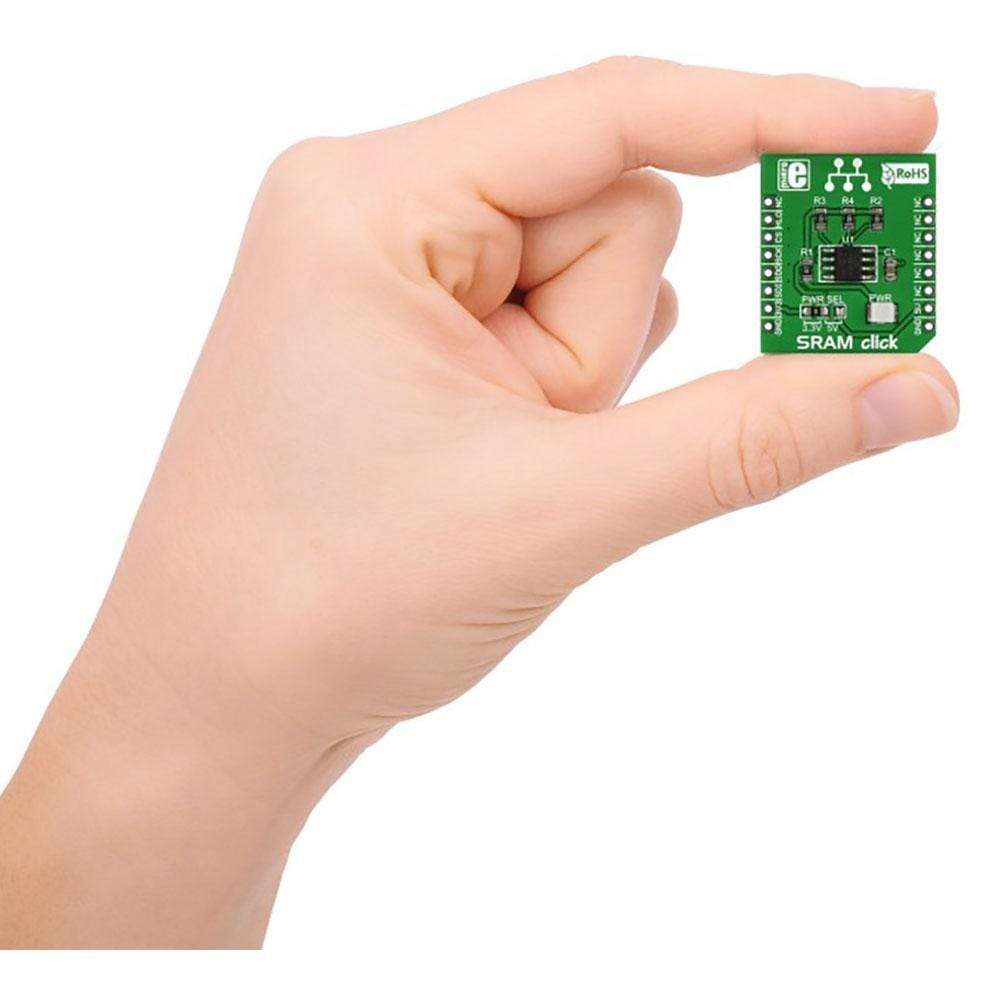
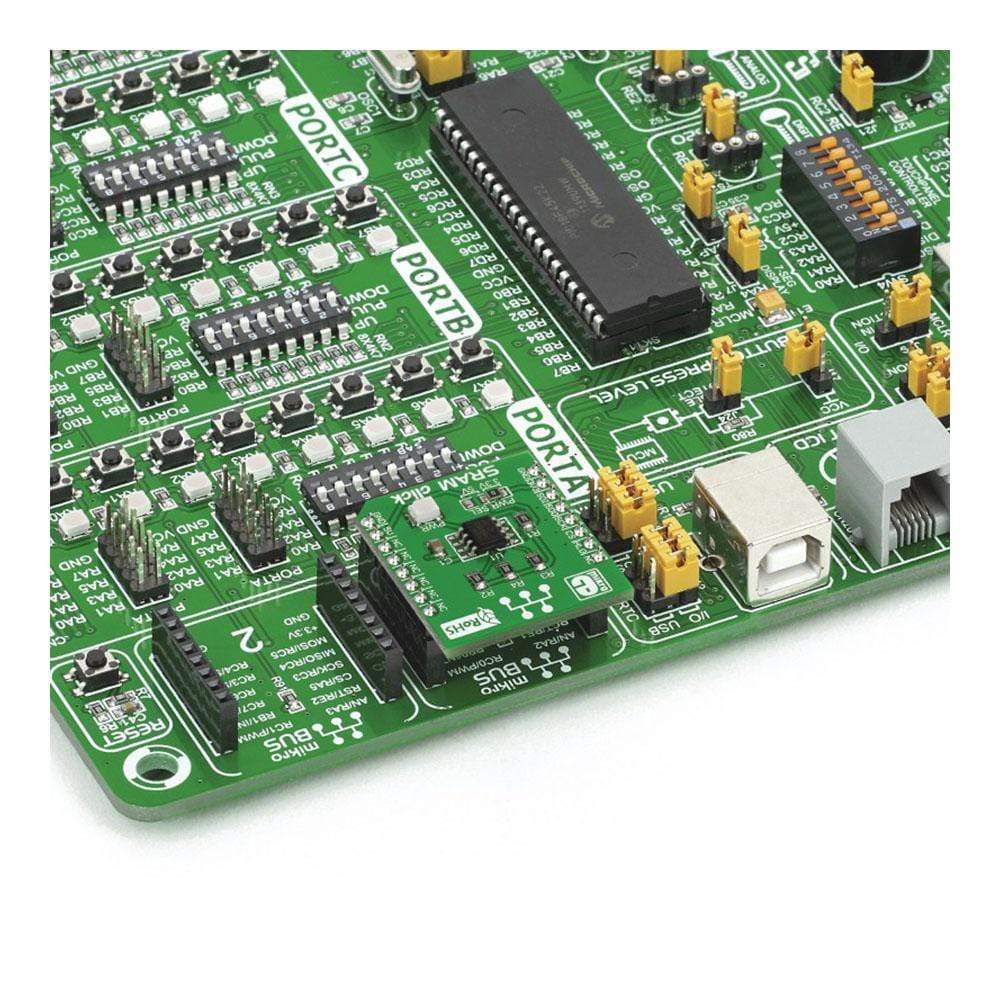
Overview
The MikroE SRAM Click Board™ is a storage add-on board that carries the 23LC1024 IC, which allows the user to add 1Mbit of additional SRAM (static RAM) memory to the device. Based on low-power CMOS technology, the 23LC1024 chip outlines the memory in 8-bit instruction registers and 32-byte pages (128K x 8-bit). For Read and Write operations, this highly reliable chip offers byte, page, and sequential operating modes. The sequential mode enables Read/Write operation for an entire memory array.
It supports unlimited Read/Write cycles to the memory array with zero Write time. It operates at a clock rate of 20 MHz for all three Read/Write modes. Communicating through the SPI-Compatible bus interface, the board also has an additional Hold pin functionality in place of the default RST pin.
The SRAM Click Board™ can be used with either 3.3V or 5V power supply.
Downloads
Das MikroE SRAM Click Board™ ist eine Speichererweiterungsplatine mit dem 23LC1024 IC, mit dem der Benutzer dem Gerät 1 Mbit zusätzlichen SRAM-Speicher (statischer RAM) hinzufügen kann. Der 23LC1024-Chip basiert auf stromsparender CMOS-Technologie und umreißt den Speicher in 8-Bit-Befehlsregistern und 32-Byte-Seiten (128 K x 8 Bit). Für Lese- und Schreibvorgänge bietet dieser äußerst zuverlässige Chip Byte-, Seiten- und sequentielle Betriebsmodi. Der sequentielle Modus ermöglicht Lese-/Schreibvorgänge für ein gesamtes Speicherarray.
Es unterstützt unbegrenzte Lese-/Schreibzyklen zum Speicherarray mit null Schreibzeit. Es arbeitet mit einer Taktrate von 20 MHz für alle drei Lese-/Schreibmodi. Die Karte kommuniziert über die SPI-kompatible Busschnittstelle und verfügt außerdem über eine zusätzliche Hold-Pin-Funktionalität anstelle des standardmäßigen RST-Pins.
Das SRAM Click Board™ kann entweder mit einer 3,3-V- oder einer 5-V-Stromversorgung verwendet werden.
| General Information | |
|---|---|
Part Number (SKU) |
MIKROE-1902
|
Manufacturer |
|
| Physical and Mechanical | |
Weight |
0.024 kg
|
| Other | |
Country of Origin |
|
HS Code Customs Tariff code
|
|
EAN |
8606015076683
|
Warranty |
|
Frequently Asked Questions
Have a Question?
Be the first to ask a question about this.

